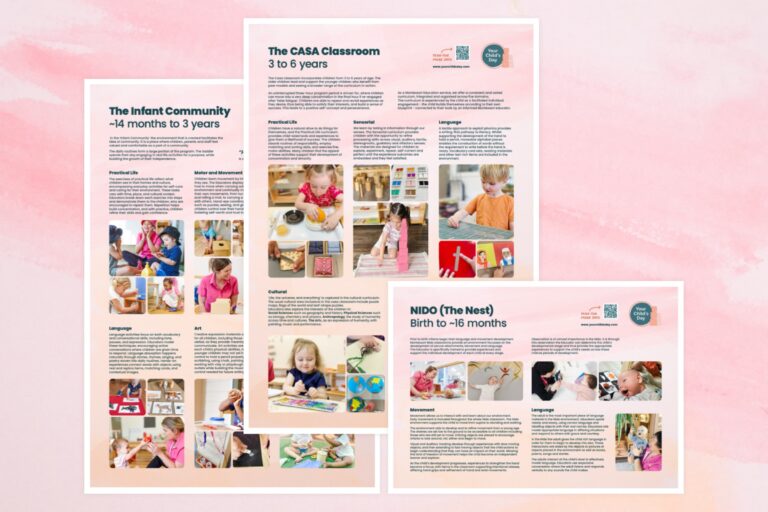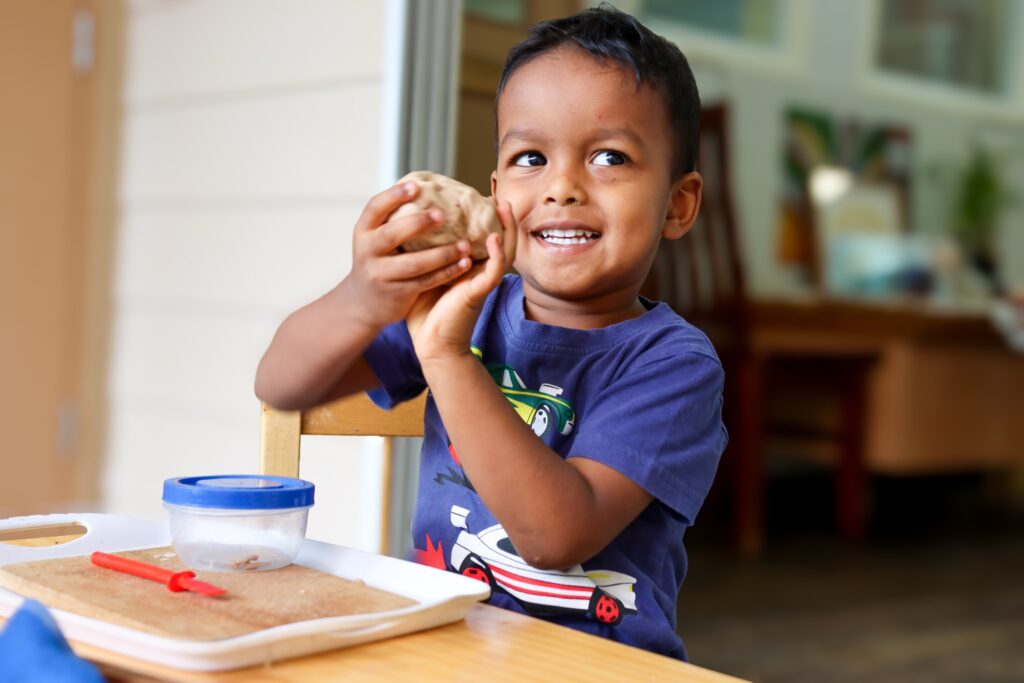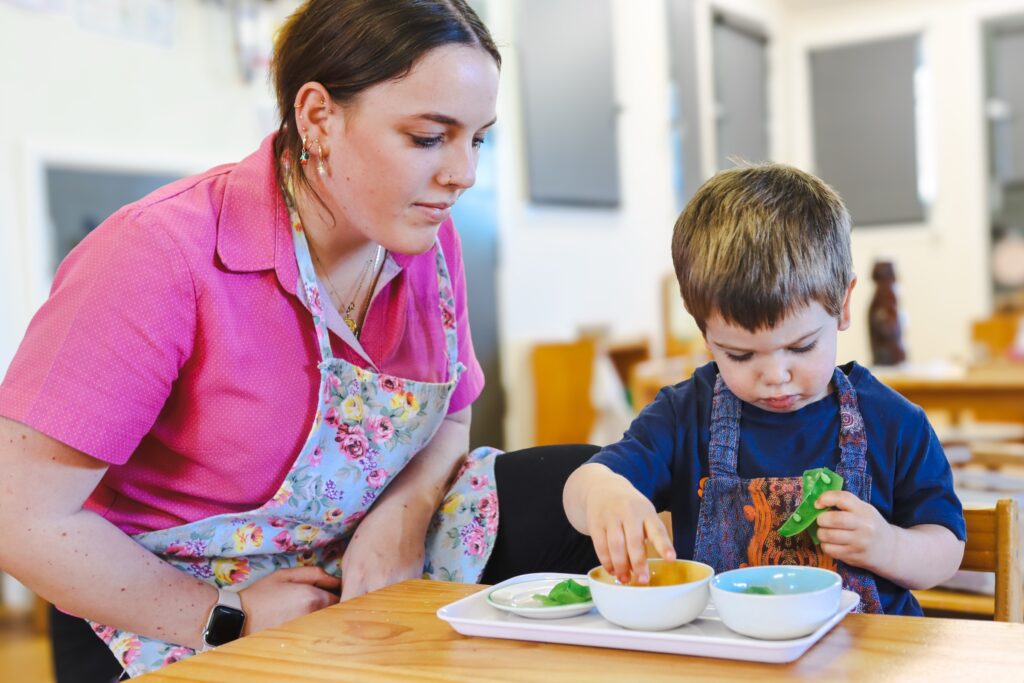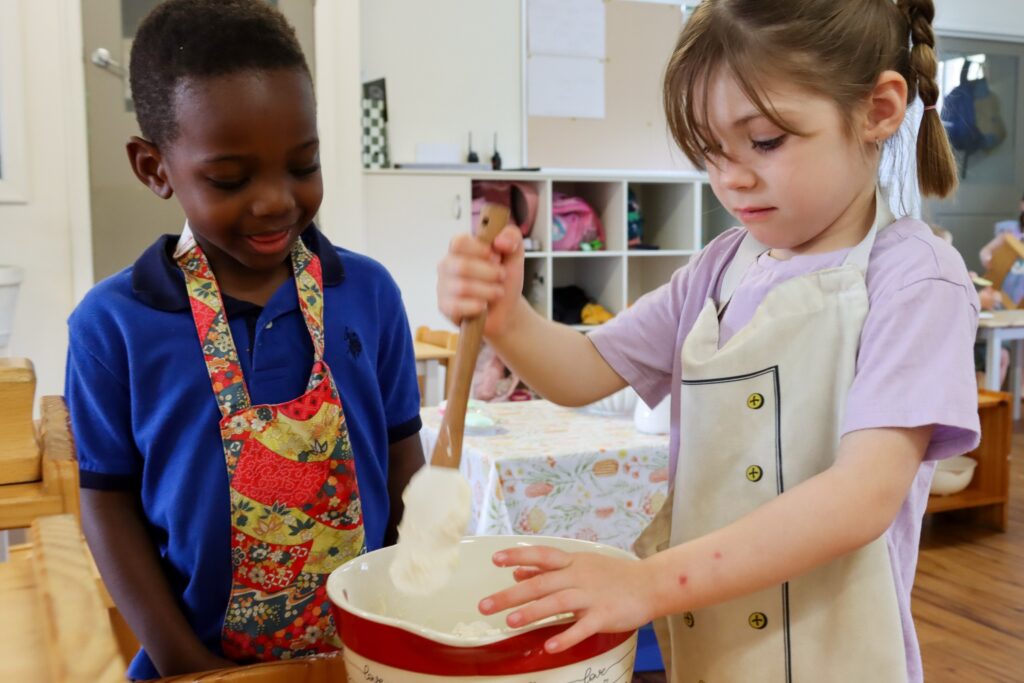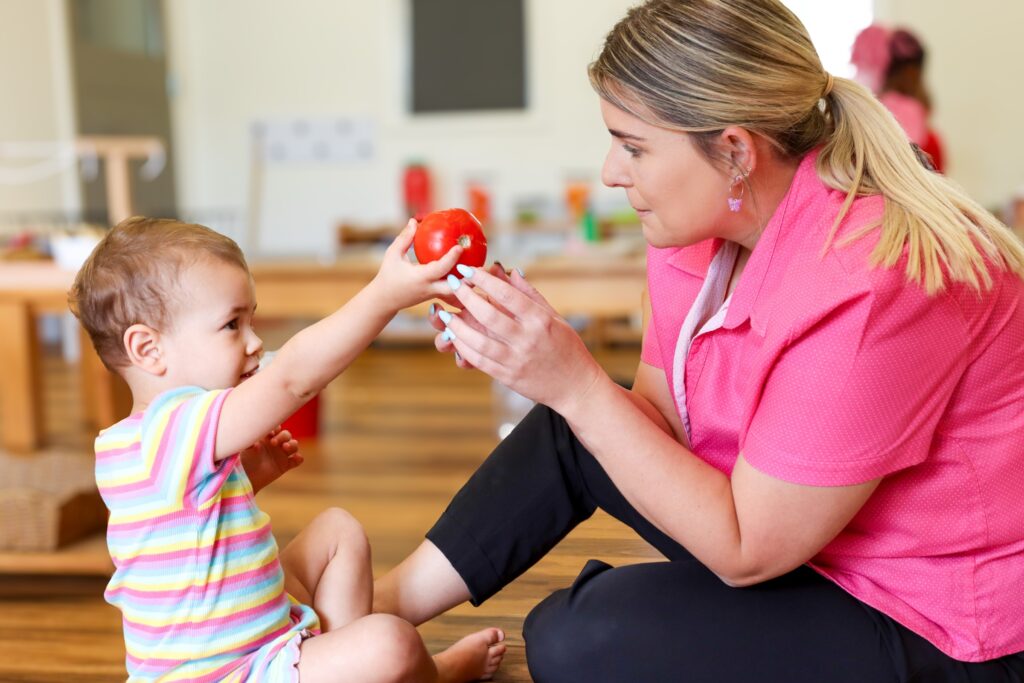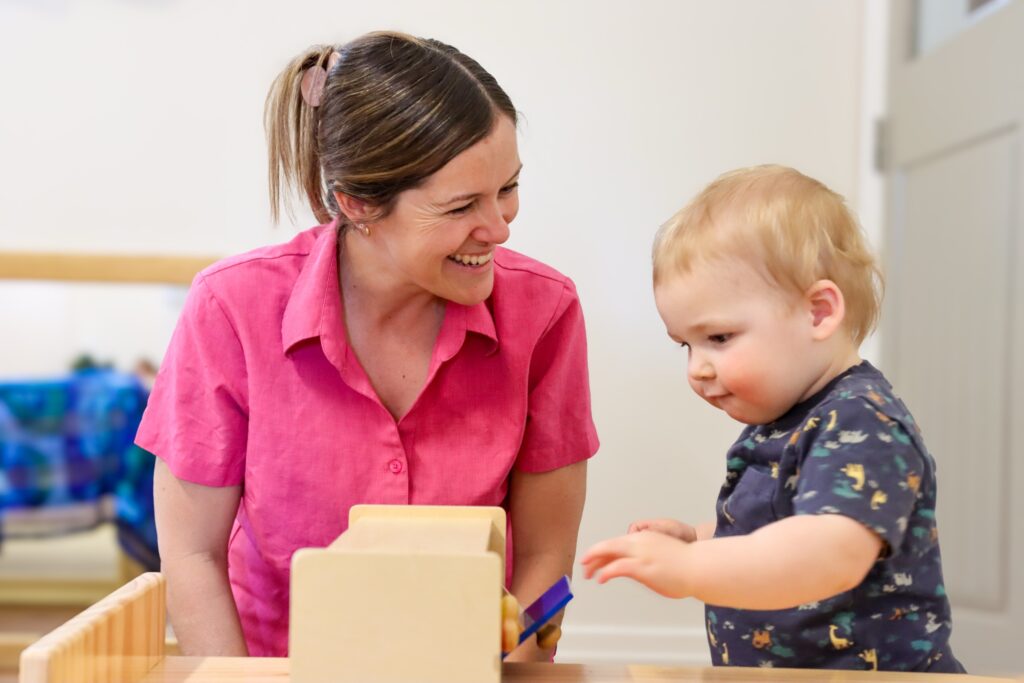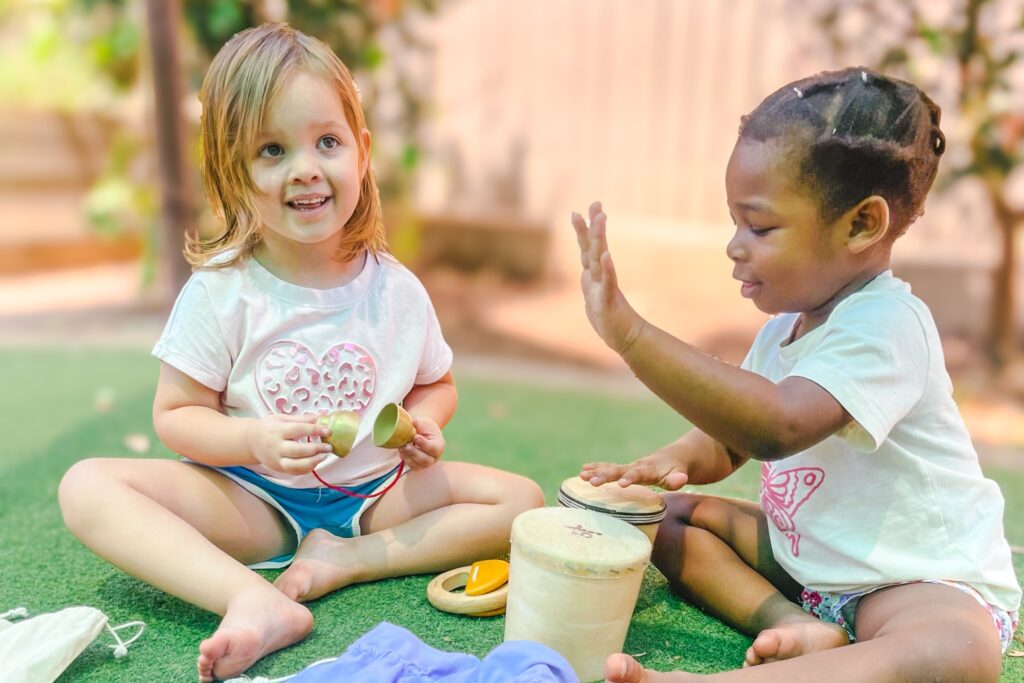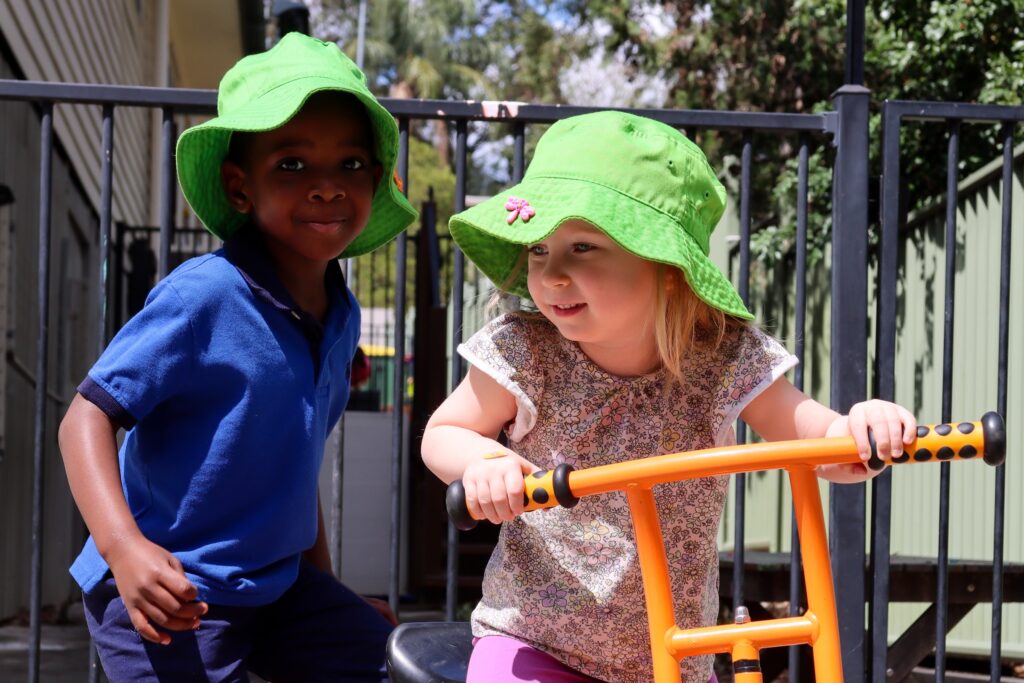Practical Life
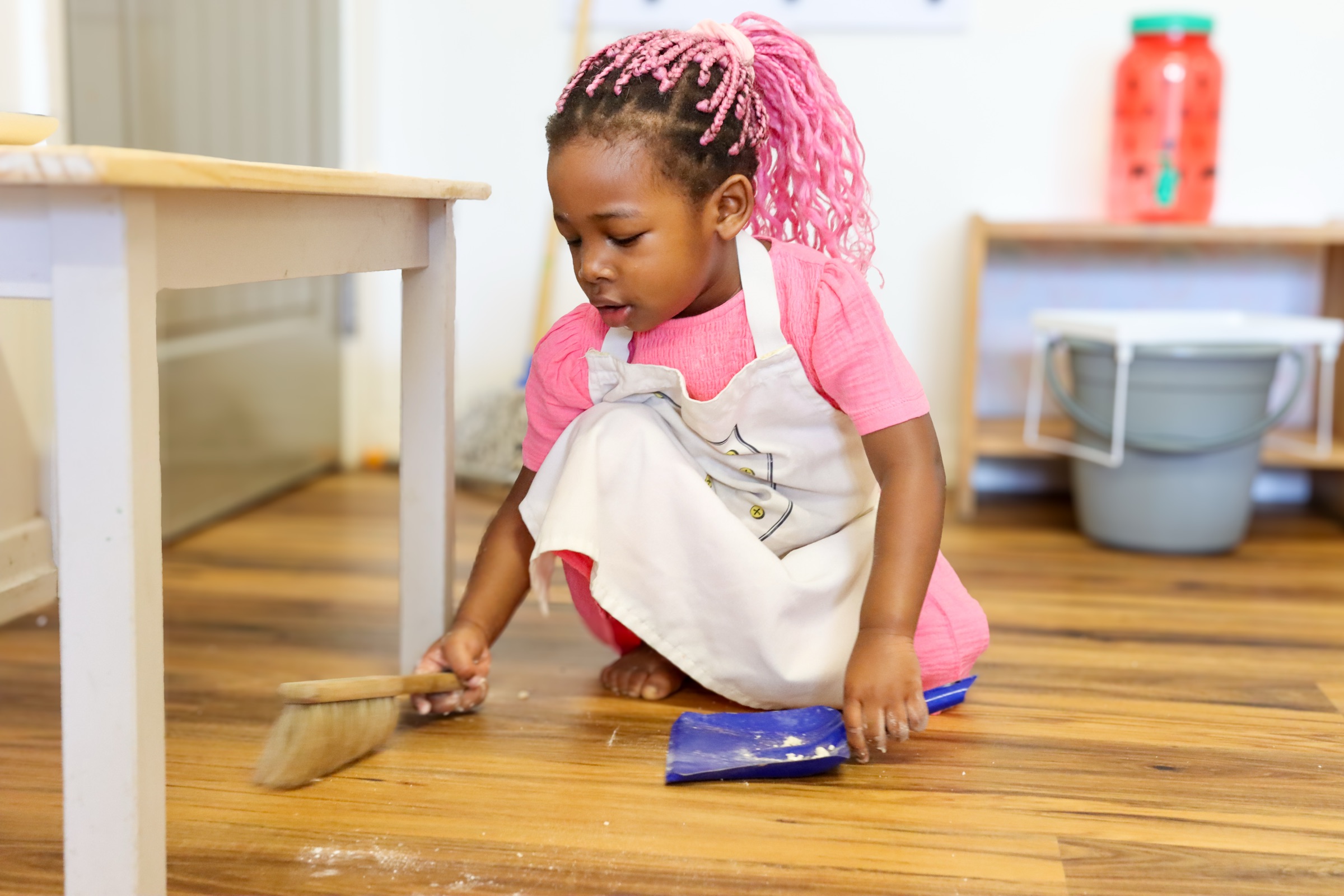
The exercises of practical life reflect what children see in their homes and culture, encompassing everyday activities for self-care and caring for their environment. These tasks vary with time, place, and cultural context. Educators break down each exercise into steps and demonstrate them to the children, who are encouraged to repeat them. Repetition helps build concentration, and with practice, children refine their skills and gain confidence.
Practical Life encompasses activities that are completed in daily life to care for oneself or their living space and are influenced by the time, place and culture in which the setting exists. The steps for each exercise are broken down and demonstrated to the children by the Educators removing any superfluous movements. The Educators will ask themselves “Why am I making that movement?”, remembering that the child will copy their actions. Experiences provided range from hand washing, brushing hair and dressing/undressing to scrubbing a table, caring for pets and washing cloths. Many other curriculum areas are entwined in the Practical Life experiences. All involve some kind of gross and fine motor movements, they include relationships and interactions with others, grace and courtesy elements and they all involve purposeful movement and language. The activities maybe colour coordinated to show that they belong together, creating a sense of order for the child. The activities of Practical Life are able to be repeated to aid development of concentration in the child and the more the exercise is repeated by the child the more refinement occurs, hence why these experiences are consistently provided within the environment.
General Purposes of Practical Life
- Aids Adaptation. It aids the child’s ability to adapt to his culture.
- Helps coordination and refinement of movement.
- It is going to give him language of the things you give him and the actions you are doing.
- It aids independence.
- Designed to encourage the child to repeat and help build concentration.
- It helps intellectual growth, brain development.
- It aids the development of will.
Through the development of will, the child will develop a healthy self-esteem and self-image which will lead to confidence in themselves. Think about how you feel when you can finally do something new.
The activities have a developmental purpose as they all involve movement, both gross and fine motor.
The activities also have a social purpose. They bring in a relationship with another person such as preparing food or setting the table. It also brings in social graces which they learn when sitting at a table or in a group such as when passing dishes of food and waiting their turn.
Each activity has a specific goal.
All involve purposeful movement.
All involve language.
All are able to be repeated. Repetition enables the child to develop concentration such as from just washing their plate and leaving, to washing, drying and putting it away. The more they do it the more refined their skills become.
Limited in number. Only 1 activity in the classroom.
Concentration
We naturally repeat things to become proficient so that we can see mistakes we may have made and correct and refine them. We have an innate tendency to do things exactly. In the Montessori environment we instil exactness through our presentations and give children a basic way of doing something that allows them to utilise the material for themselves. Some children only need a few repetitions and some need many more to reach the point with which they feel satisfied. The sense of exactness is so unique and individual that we do not want there to be only one ‘right’ way. Children are free to explore and repeat to reach their own height of exactness, according to their own tendencies.
A Child will develop concentration by repetition and a sense of satisfaction when their work and efforts are finished. A child using the water source to fill their jug, tipping it out, refilling, emptying over and over again until they are satisfied.
As Adults we show our concentration in ways such as we want to have our work correct and exact, and to do so we study and review the material given and taught. We repeat things in different ways possibly writing more than one draft until we are satisfied.

